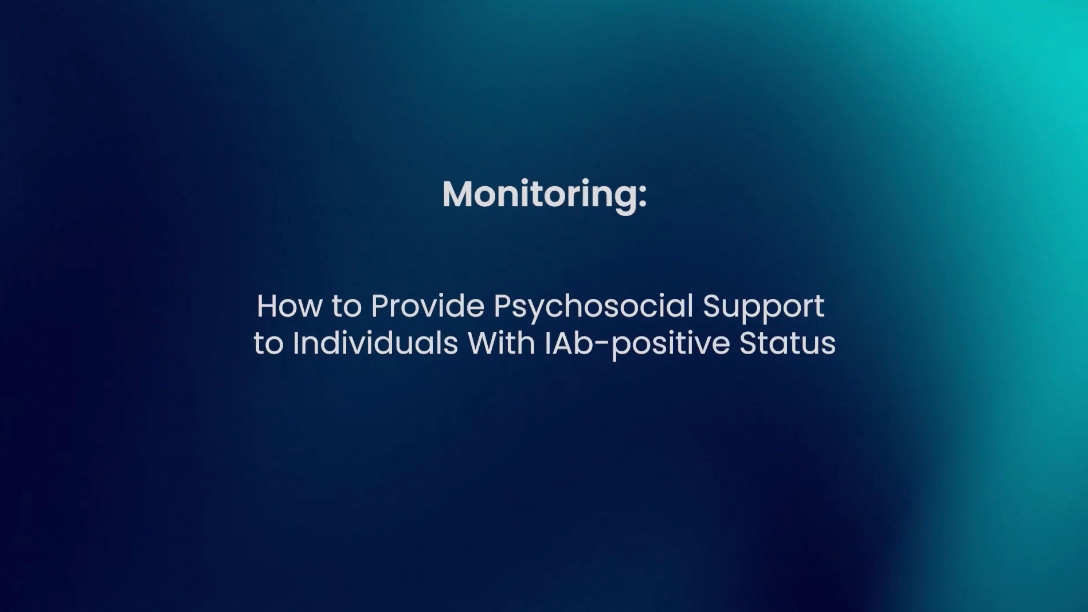- Resource
- BR1DGE
- Monitoring
- Video
Monitoring: How to Provide Psychosocial Support to Individuals With IAb-positive Status
Expert interviews discussing psychosocial support for individuals at risk of T1D
Learning Objectives
- Provide practical advice and tools to effectively navigate conversations about IAb-positive results, addressing the potential burden on individuals and their families or caregivers
Summary
An IAb-positive test result impacts people in different ways. Some families are happy to know that their child won't be diagnosed in the hospital and that they can monitor them. Other families react with a lot of stress or anxiety and worry about when will this happen and what will it look like.
For HCPs it can be difficult to communicate risk. The most important thing is to confirm IAb status. HCPs should have all the information so to advise families best what their situation is and what the next steps will look like.
People who test positive for early-stage T1D should have educational materials that are adapted to their local situation (in the video, Prof. Mathieu highlights the INNODIA project as an example). Additionally, consensus guidelines and other online resources, such as such as Ask the Experts, are important in assisting psychosocial support.
Ask the Experts program is funded by The Leona M. and Harry B. Helmsley Charitable Trust.
Copyright © 2023 The Regents of the University of Colorado on behalf of ASK THE EXPERTS. Not intended for commercial use.
This tool is licensed under the Creative Commons Attribution-NonCommercial-NoDerivatives 4.0 International (CC BY-NC-ND 4.0)
Design/Website: GSU
COMIRB #21-4735 PI: Dr. Kimber Simmons, MD, MS.
MAT-GLB -2501238 -2.0 - 07/2025.

.png/jcr:content/1190x500_Monitoring%20How%20to%20Provide%20Psychosocial%20Support%20to%20Individuals%20With%20IAb-Positive%20Status%20(1).png)



